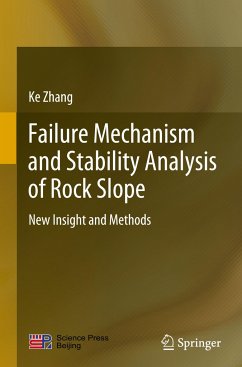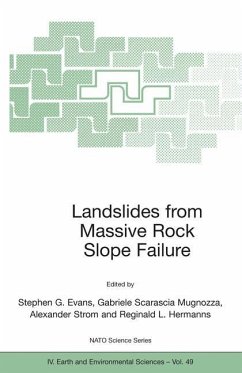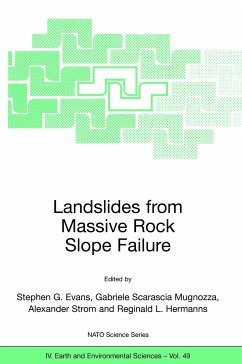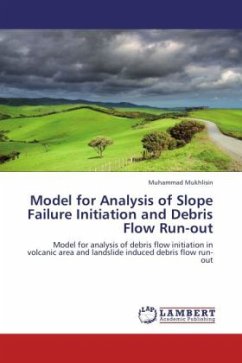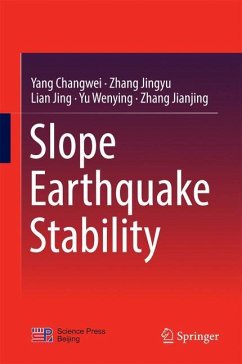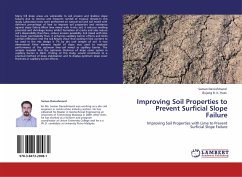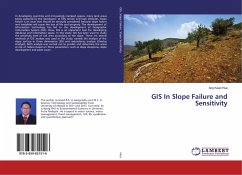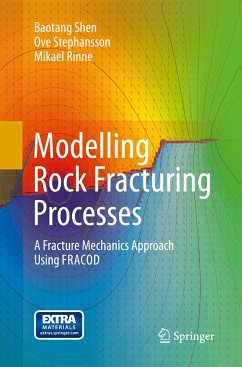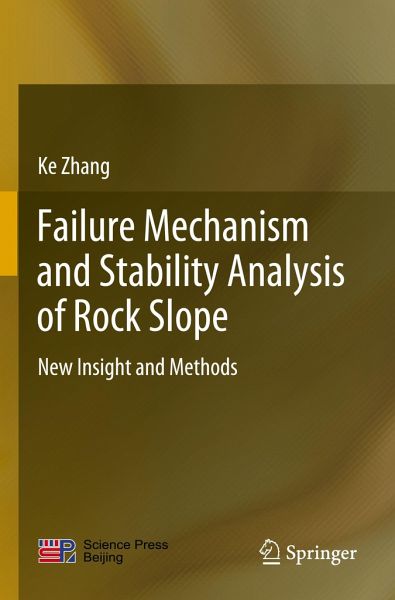
Failure Mechanism and Stability Analysis of Rock Slope
New Insight and Methods
Versandkostenfrei!
Versandfertig in 6-10 Tagen
104,99 €
inkl. MwSt.
Weitere Ausgaben:

PAYBACK Punkte
52 °P sammeln!
This book presents in-depth coverage of laboratory experiments, theories, modeling techniques, and practices for the analysis and design of rock slopes in complex geological settings. It addresses new concepts in connection with the kinematical element method, discontinuity kinematical element method, integrated karst cave stochastic model-limit equilibrium method, improved strength reduction method, and fracture mechanics method, taking into account the relevant geological features. The book is chiefly intended as a reference guide for geotechnical engineering and engineering geology professi...
This book presents in-depth coverage of laboratory experiments, theories, modeling techniques, and practices for the analysis and design of rock slopes in complex geological settings. It addresses new concepts in connection with the kinematical element method, discontinuity kinematical element method, integrated karst cave stochastic model-limit equilibrium method, improved strength reduction method, and fracture mechanics method, taking into account the relevant geological features. The book is chiefly intended as a reference guide for geotechnical engineering and engineering geology professionals, and as a textbook for related graduate courses.



